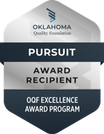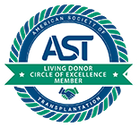LIFESHARE MAKES REFERRAL PROCESS EASIER FOR HOSPITAL PARTNERS
LifeShare has recently completed its first phase of internalizing the donation referral process. This plan will allow for better customer service and less phone calls for our hospital partners calling in timely referral deaths.
As a part of the donation process, every hospital must contact LifeShare when a patient’s death is imminent or has occurred, according to the Centers for Medicare and Medicaid Services guidelines. In addition, LifeShare staff, Donation Services Coordinators (DSC), communicate with families regarding the patients wish to become a donor.
Beginning in February, LifeShare DSC started the transition and began training on the new process. Just a month later, staff began spending a certain amount of time each day to work up to taking 24-hour call starting March 26.
Previously, LifeShare was using a third party vendor to run triage referral calls for LifeShare. That vendor would send information to LifeShare if they thought the patient would meet qualifications to become a donor. If the patient did meet the qualifications, LifeShare DSC would call the hospital and family back.
Leadership and staff began having conversations around offering the best experience to our hospital staff and families. Transitioning to LifeShare staff taking a triage call would allow for faster service, a streamlined process but also allow patients to be filtered by LifeShare staff instead of a third party vendor.
The communications center, currently staffed by nine DSC, one manager and a director will soon be fully staffed with 12 DSC.
LifeShare is aiming for the Communications Center to become more of a command central in the future, where DSC will coordinate travel for recovery staff, allocate abdominal organs and serve as the general resource for the organ and tissue teams.
The full plan is set to be in place by spring of 2020.
As a part of the donation process, every hospital must contact LifeShare when a patient’s death is imminent or has occurred, according to the Centers for Medicare and Medicaid Services guidelines. In addition, LifeShare staff, Donation Services Coordinators (DSC), communicate with families regarding the patients wish to become a donor.
Beginning in February, LifeShare DSC started the transition and began training on the new process. Just a month later, staff began spending a certain amount of time each day to work up to taking 24-hour call starting March 26.
Previously, LifeShare was using a third party vendor to run triage referral calls for LifeShare. That vendor would send information to LifeShare if they thought the patient would meet qualifications to become a donor. If the patient did meet the qualifications, LifeShare DSC would call the hospital and family back.
Leadership and staff began having conversations around offering the best experience to our hospital staff and families. Transitioning to LifeShare staff taking a triage call would allow for faster service, a streamlined process but also allow patients to be filtered by LifeShare staff instead of a third party vendor.
The communications center, currently staffed by nine DSC, one manager and a director will soon be fully staffed with 12 DSC.
LifeShare is aiming for the Communications Center to become more of a command central in the future, where DSC will coordinate travel for recovery staff, allocate abdominal organs and serve as the general resource for the organ and tissue teams.
The full plan is set to be in place by spring of 2020.








